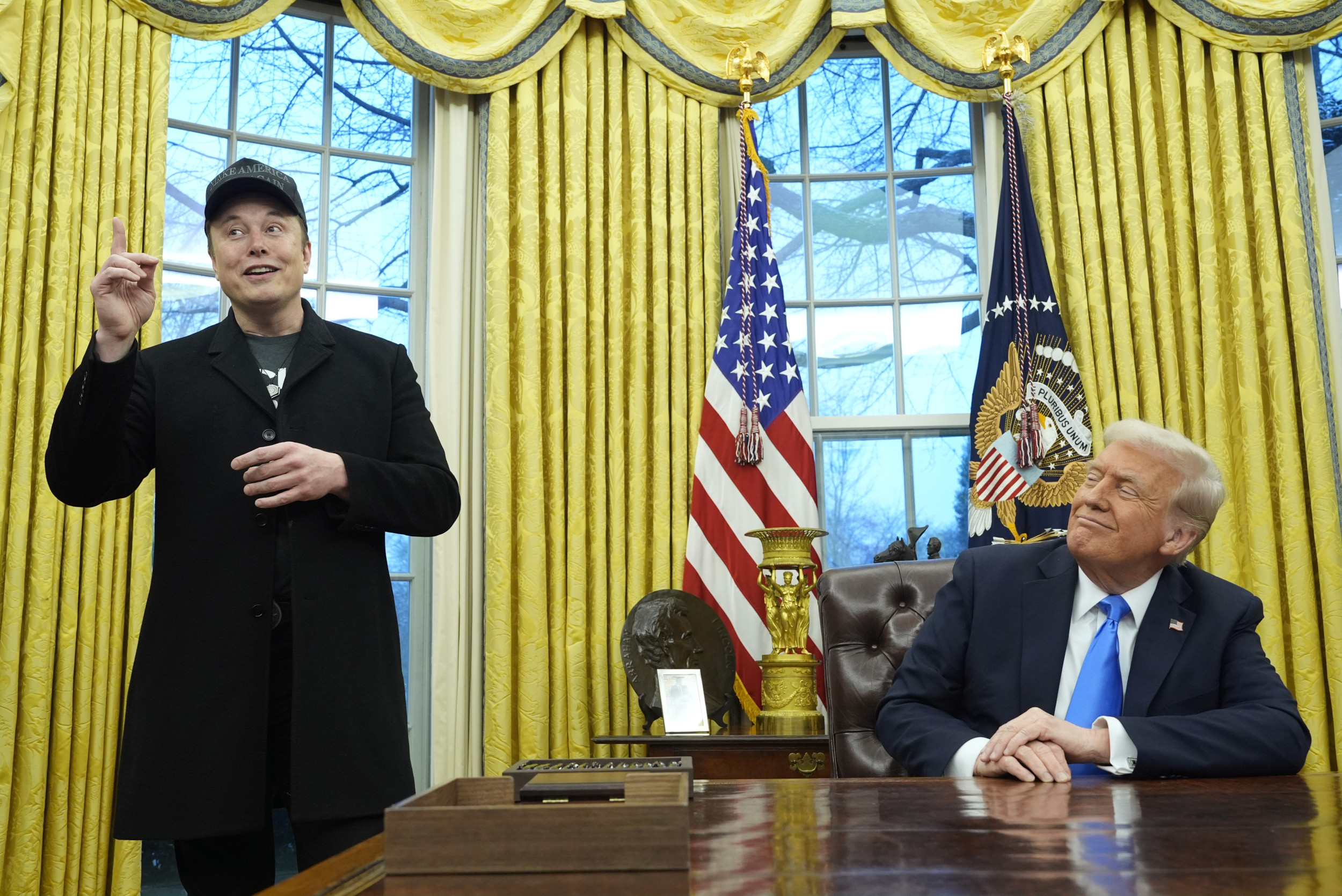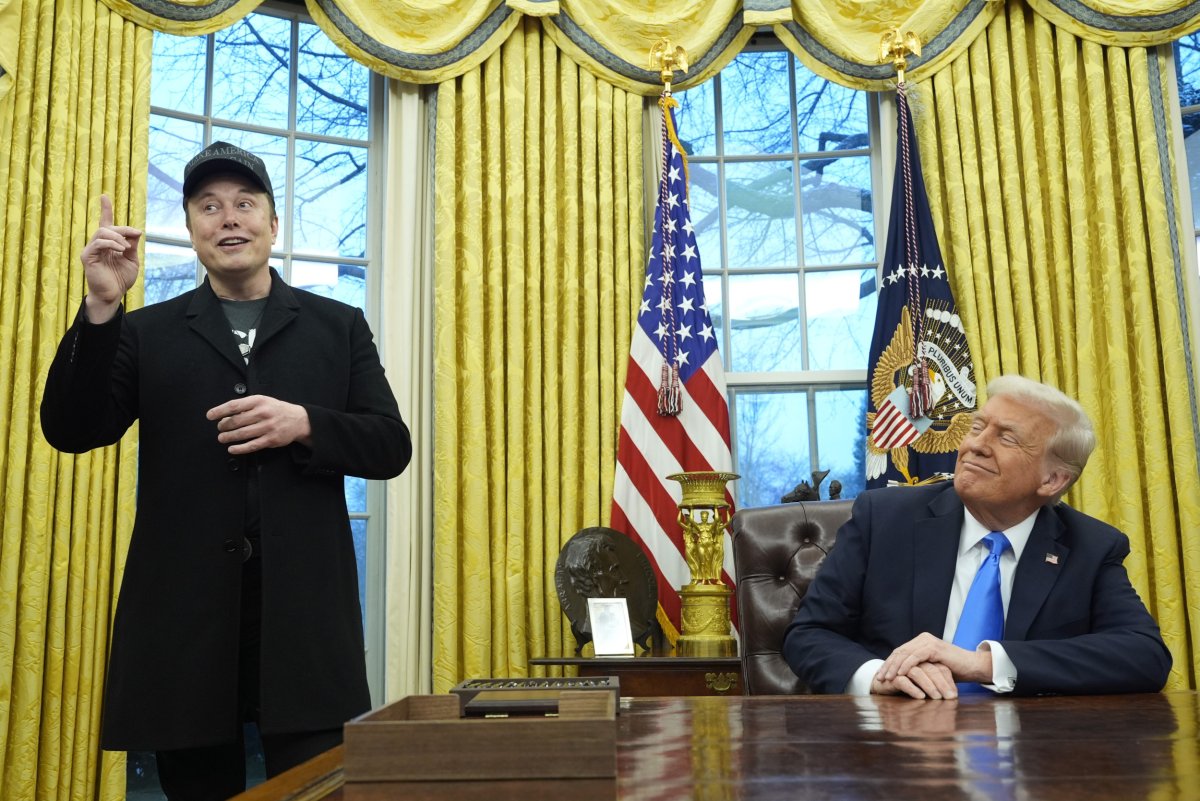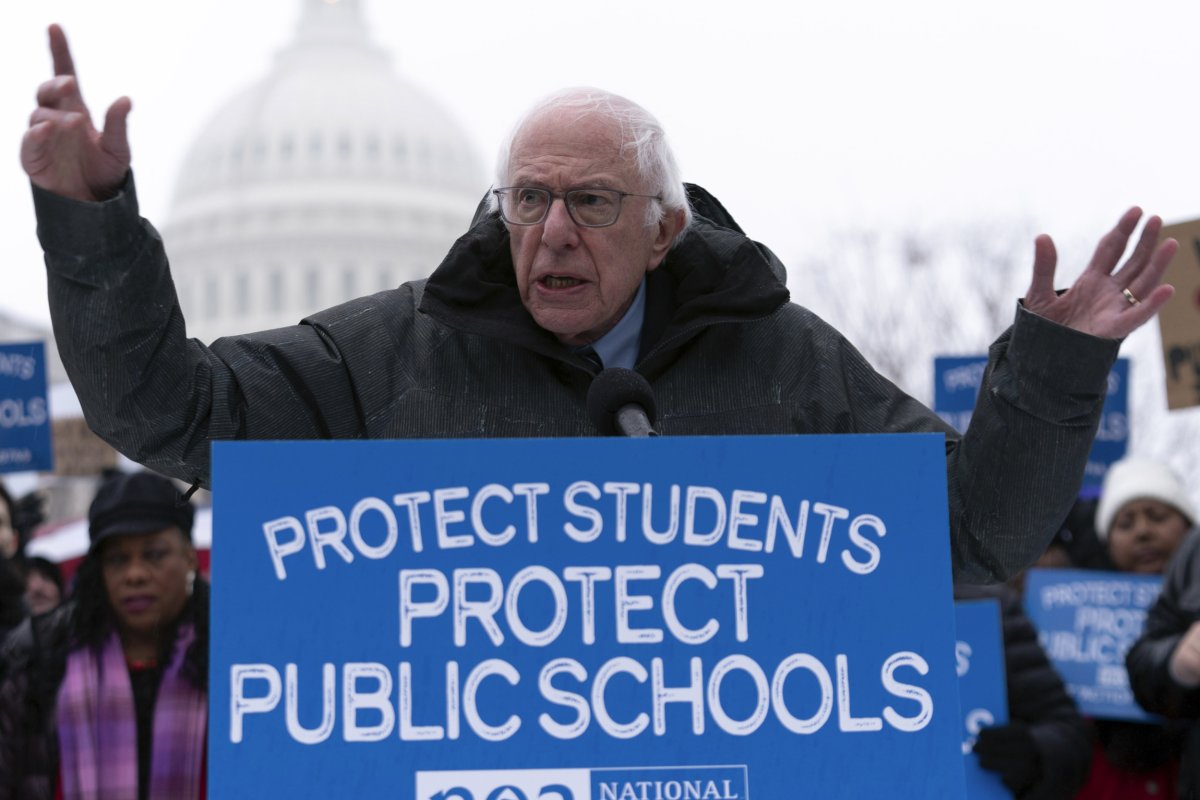
Under Elon Musk‘s leadership, the Trump Administration’s new Department of Government Efficiency—or DOGE for short—is slashing federal spending across the board, and the Department of Education took a hefty chop in recent days.
On February 11, DOGE announced it had terminated 89 contracts with the Department of Education worth $881 million as part of its mission to tackle what it identifies as either waste or fraud in government spending. DOGE cited a contractor “paid $1.5mm to ‘observe mailing and clerical operations’ at a mail center.”
It followed a separate announcement the same day by DOGE that it had ended 29 “DEI training grants” worth $101 million. DEI stands for diversity, equity, and inclusion, and is a label for efforts targeted at helping marginalized or underrepresented groups.
“When not wasting money on bureaucracy, the Department of Education has been funding anti-Americanism, gender nonsense and anti-meritocratic racism,” Musk wrote in a post on his social media platform, X.
In a press briefing at the Oval Office alongside President Donald Trump, Musk said the work of DOGE had received a strong mandate in the election, Americans knew they were voting for “major government reform”, and so “that’s what the people are going to get.”
So what will be the impact of DOGE’s cuts to the Department for Education? Newsweek asked some of those working inside the education system for their views. Here’s what they said.

AP/Alex Brandon
Andy Rotherham: Education Reform Isn’t the Problem—It’s How
DOGE is cutting things that can be cut, legally, because of how they are funded. They are not necessarily cutting what should be cut based on need or effectiveness.
So sure, they’ll find some waste, but they’re also going to cut data gathering and reporting activities and evaluations that matter to the education system. Or could cost more money when they have to be recreated.
It’s not the idea of reform that’s the problem, it’s the indiscriminate nature of how this is happening.
Andy Rotherham is co-founder and senior partner of Bellwether, a nonprofit education consultancy.
Peggy Brookins: DOGE Cuts Threaten High-Quality Teaching
These extreme cuts to the education budget will have a devastating impact on both teachers and students, directly hindering the resources and support necessary for effective learning.
Eliminating programs designed to elevate the quality of education will set back efforts to improve the teaching profession and student outcomes.
This includes funding cuts for initiatives led by the National Board for Professional Teaching Standards, which has been dedicated to advancing accomplished teaching since 1987.
Instead of slashing funding, we should be strengthening our investments that ensure every student receives the high-quality education they deserve.
Peggy Brookins, NBCT, is president and CEO of the National Board for Professional Teaching Standards.
Joanna Weiss: Vital Education Supports Are Threatened
The purpose of the U.S. Department of Education is to support states in making sure learning opportunities exist for every child, including those from low-income families, for students learning English, and for students with disabilities.
In the face of deep and persistent learning losses, that work has never been more important. The Administration’s actions are sowing confusion and chaos for districts and states just when they need to be focused on recovery.
They threaten vital supports like after-school learning and cut off the flow of basic information and research necessary to improvement nationwide. And they open the door to the graft and corruption this effort purportedly aims to prevent.
Every leader I know would welcome increased efficiency—but these actions will produce the opposite.
Joanne Weiss is former chief of staff to the U.S. Secretary of Education in the Obama Administration.

AP/Jose Luis Magana
Samuel G. Freedman: Trump, Musk Are Making Good on Right-Wing Desires for Education
For long before Trump and Musk came into power, the right wing of this country has reviled the concept of a federal role in public education.
You have to think back to the resistance to desegregation—not only in the South after the Brown v Board of Education decision in 1954, but in northern cities like Boston when integration was called for by federal judges in the 1970s.
You have to think of how conservative states objected to the notion of federal standards of academic achievement in the No Child Left Behind law—even though that law was proposed by a Republican president, George W. Bush.
So Trump and Musk are making good on some long-standing desires of the right wing.
What’s different, and more insidious now, is that MAGA sure does want federal control of public education in other ways, such as giving public funding to religious schools and mandating “patriotic education” and issuing executive orders against a vague, unspecified enemy they call “DEI.”
So, really, Trump and Musk want no education professionals at the federal level, but they very much want centralized power in the form of a dictator and his favorite thug running local school policies and practices.
Samuel G. Freedman is a Columbia Journalism School professor who has written often about education, and is a former award-winning author of the New York Times “On Education” column.





